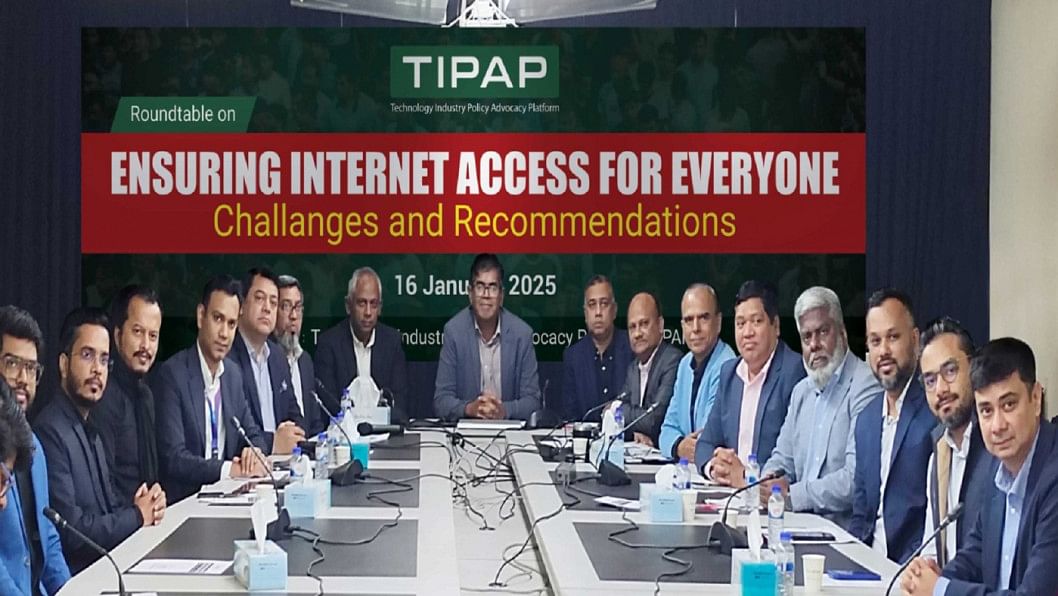Excessive taxation barrier to affordable internet in rural areas: experts

The government's excessive taxation is the primary barrier to affordable internet access for rural communities in Bangladesh, experts said today.
When a mobile phone user buys a Tk 100 worth internet package, over Tk 60 goes directly into the government's pocket, they said.
Since the government can easily collect a large sum from 10 crore mobile internet users, it does not want the price of the internet to decrease, they opined.
The experts made the comments while speaking at a roundtable organised by the Technology Industry Policy Advocacy Platform (TIPAP) at The Daily Star Centre in Dhaka.
The roundtable brought together key stakeholders, including representatives from leading telecom companies, Internet Service Providers (ISPs), software companies, and the freelancing community.
During the session, Bdjobs CEO Fahim Mashrur presented troubling statistics about internet usage in the country.
While urban areas have extensive access to broadband, rural Bangladesh lags significantly behind.
On average, an urban broadband user consumes 100GB of data per month, whereas rural users typically consume only 6 GB.
In neighbouring India, mobile data usage is three times higher than in Bangladesh, leaving the country behind in critical sectors such as education and healthcare, which rely on internet access.
Speakers at the event pointed out that excessive government taxes on mobile data are the primary reason for the rising internet costs.
In addition to the 15 percent VAT, mobile internet is subject to a 23 percent supplementary duty, a 2 percent surcharge, and 6 percent revenue sharing, driving up costs for users.
Mobile operators reported that taxes on mobile services have more than doubled in the last decade.
ISPs raised another concern regarding the government-backed monopoly in National Telecommunication Transmission Network (NTTN) licences, which prevents cheaper data transmission in rural areas.
The experts called on the Bangladesh Telecommunication Regulatory Commission (BTRC) to allow telecom companies to directly manage data transmission nationwide to reduce costs and lower prices for consumers.
The panel also expressed discontent over the recent imposition of a new supplementary tax on internet services by the National Board of Revenue (NBR), which increased the tax on mobile services by 3 percent and broadband services by 10 percent.
The speakers argued that this hike contradicts the principles behind the July 2024 digital revolution.
Present at the event were telecom experts such as Mahatab Uddin Ahmed, CEO of Buildcon Consultancies Ltd; Mohammad Zulfikar, secretary general of the Association of Mobile Telecom Operators of Bangladesh; Shahed Alam, chief corporate and regulatory officer of Robi; Taimur Rahman, chief corporate and regulatory officer of Banglalink; Mohammed Aminul Hakim, CEO of the Bangladesh Internet Governance Forum, and Imdadul Haque, president of ISPAB.

 For all latest news, follow The Daily Star's Google News channel.
For all latest news, follow The Daily Star's Google News channel. 



Comments